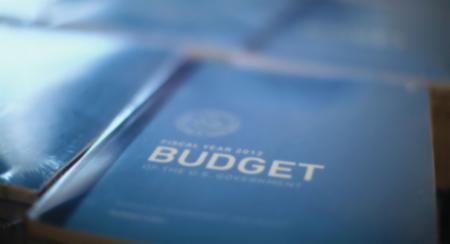 | « Back to article | Print this article |
8 New Year resolutions to make you financially secure
Everyone steps into a new year with optimism and positivity. The beginning of the year is when you can start afresh and make changes to all the unsuccessful financial practices of the previous year.
Here are eight financial resolutions, which will help you to make better and smarter financial decisions going forward.
Create your own personal finance statement
Start off by doing a reality check on where you stand financially by drawing out your own personal finance statement. This should have all your income sources, your expenses, your investments, insurance policies, and so on, with complete details of each.
Click NEXT to read further...
8 New Year resolutions to make you financially secure
List down your loans and the interest paid on each. Compare the interest rates of your loans and investments, and take informed decisions.
If you do not know your present financial condition, you cannot plan for the future. Take the first step by making your own statement and doing a rigorous progress-check regularly.
Control expenses by avoiding impulse spending
Impulse spending deteriorates financial health. It refers to spending without any forethought, purpose and planning. Some people have the habit of purchasing things they don't even need, simply because they find it attractive. This habit naturally leads to higher monthly credit card bills and lower cash with you.
You can avoid impulsive purchases by unsubscribing from shopping emails, by avoiding shopping to kill time, and being strict with your children. This New Year, resolve to spend less and save more.
Click NEXT to read further...
8 New Year resolutions to make you financially secure
Invest more of your income
When you spend less and save more, you have more cash left with you for investments. Aim to invest the maximum possible this year, but on a monthly basis.
The more you invest in the initial years of your career, the higher will be your long-term corpus. Set a savings goal this year and track your progress on a monthly basis.
Create a budget and stick to it
This is one of the most common resolutions people make, and also the one they break first. It is very important to create an expense budget, note down actual expenses, and analyse where you have missed targets.
It may be difficult to stick to the targets initially. As time passes, you will realise that there is a huge change in your expenditure pattern, which is reflected by the discipline in your finances.
Click NEXT to read further...
8 New Year resolutions to make you financially secure
Bring down debt
High debt means a huge cash outflow towards interest. Start off by paying down your credit card bills and personal loans, as these carry high interest rate.
Use your annual bonuses and benefits in a wise manner, by paying off such loans. If you have surplus cash, you should consider part pre-payment of bigger loans such as vehicle and home loans.
Home loans should especially be analysed carefully as this can be the longest debt of your life. Scout for lower interest options in the market and aim to reduce the total term of the home loan to save on interest cost.
Cut down on unused, unnecessary cards
It is often seen that people carry several credit and debit cards in their wallet, most of which they don't even use. Owning multiple credit cards from different banks is viewed as a status symbol.
While having a debit card and credit card is imperative, owning beyond one's needs and means is foolish. You should not hold more than you can afford. This year, look at cancelling all your extra credit and debit cards.
Click NEXT to read further...
8 New Year resolutions to make you financially secure
Build an emergency fund
A contingency fund refers to a corpus for emergencies like job loss, loss of pay or a sudden accident. Experts advise to hold at least 6 months of expenses in an emergency fund.
If you do not have a contingency fund, resolve to start building one this year. It will take time. Make regular investments and gradually build a corpus which is liquid and still earns returns for you.
Learn something new about investing
A person feels empowered when educated. This year, empower yourself by learning something new about investing. It can be as simple as subscribing to a personal finance magazine to read personal finance columns and investment articles, or more complex initiative like enrolling in an education programme, which teaches investors various aspects of investing.
Take each of the above resolutions seriously with an honest intention to improve your financial position this year. Start small and progress gradually to achieve your financial goals.
Powered by
BankBazaar.com is an online marketplace where you can instantly get loan rate quotes, compare and apply online for your personal loan, home loan and credit card needs from India's leading banks and NBFCs.
Copyright 2024 www.BankBazaar.com. All rights reserved.




